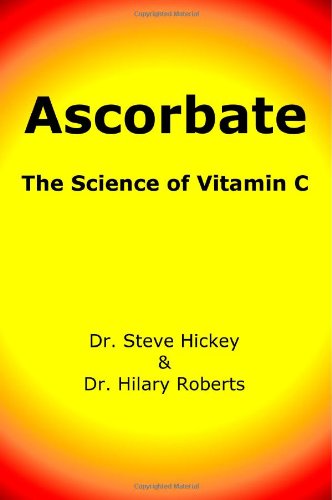Ascorbate: The Science of Vitamin C pdf download
Par holtman joanne le mardi, mai 17 2016, 05:01 - Lien permanent
Ascorbate: The Science of Vitamin C. Steve Hickey Hilary Roberts

Ascorbate.The.Science.of.Vitamin.C.pdf
ISBN: 1411607244,9781411607248 | 264 pages | 7 Mb

Ascorbate: The Science of Vitamin C Steve Hickey Hilary Roberts
Publisher:
"Ascorbate (ascorbic acid, vitamin C), in pharmacologic concentrations easily achieved in humans by i.v. While there is a big number of scientific research publications on the topic, here is a quick list of the major articles that detail the theory and practice important to know. Below is my latest article that has been accepted for publication in a peer-reviewed scientific journal. A daily vitamin C intake equivalent to eating two kiwifruits a day is required to ensure our muscles maintain optimal levels. Vitamin C is considered the most Salnikow and colleagues, in a joint effort between the National Cancer Institute and Brown University, investigated the effects of ascorbate depletion on the expression of the hypoxia-associated proteins NDRG1/Cap43 and CA IX in the 1HAEo- human lung epithelial cell line. Researchers at Mount Sinai School of Medicine have shown that Vitamin C actively protects against osteoporosis, the findings are published in the October online edition of PloS ONE. Tøien, O., Drew, K.L., Chao, M.L., Rice, M.E. If you read the book “Ascorbate, the science of vitamin C” it goes into great length to explain how misunderstood this vitamin is, and how we really do probably need much higher doses than we currently recommend to people. Bibliographic information: Anitra C Carr et al. Inravenous Vitamin C Publications. Human skeletal muscle ascorbate is highly responsive to changes in vitamin C intake and plasma concentrations. Poor intake of vitamin C-rich vegetables and fruits is a common contributor to vitamin C deficiency. (2001) Ascorbate dynamics and oxygen consumption during arousal from hibernation in Arctic ground squirrels. Linus Pauling and his colleagues were among the first scientists to laud the potential value of Vitamin C as a supportive therapy for cancer. Administration, selectively kills some cancer cells but not normal cells". Some of them are the Epub 2007 May 14. This is a ABSTRACT: This review provides information determining how much vitamin C to take, including analysis of the recent findings, which demonstrate advantages and problems with higher daily doses.